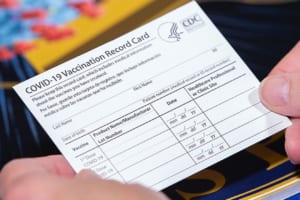One key requirement for an I-129F Petition approval and proceeding K-1 non-immigrant visa is that the U.S. citizen and foreign fiance must have physically met within 2 years prior to filing the I-129 Petition with the United States Citizenship and Immigration Service (USCIS). Those who have not satisfied the two year meeting requirement and would still like to file an I-129F may do so provided USCIS waives this requirement.
What Must be Provided with the I-129F Petition?
The couple must provide evidence of a physical meeting such as:
- U.S. Citizen’s Passport Showing Admission Stamps Visiting His or Her Foreign Fiancee;
- Airline Tickets
- Hotel Reservations
- Restaurant Receipts
- Pictures of the Couple Together and with Friends and Family
When is the Waiver Submitted?
Applying for a waiver must be done in conjunction with the original I-129F Petition filing. There are two scenarios of how a two-year meeting requirement waiver may be granted:
- If meeting between the petitioner and beneficiary would result in “extreme hardship” to the petitioner;
- If such a meeting would violate long-standing customs of the beneficiary’s culture.
Extreme Hardship to the Petitioner
USCIS interprets extreme hardship to the petitioner as showing that it is close to physically impossible for the petitioner to be able to meet the beneficiary. For example, the petitioner not being financially able to make a trip to meet the beneficiary or the petitioner not being able to have enough time off work to meet the beneficiary is not viewed as extreme hardship. However, if the petitioner is suffering from a medical condition in which they are physically unable to travel may be seen as extreme hardship. At the same time, the petitioner being unable to travel because they are incarcerated or on parole is also not seen as extreme hardship.
Meeting Prior to Marriage Would Violate of Long-Standing Customs of the Beneficiaries Culture
In situations where it is physically possible for the couple to meet but doing so would violate long-standing customs of the beneficiary’s culture, a waiver may be sought. However, proving that such a meeting would violate long-standing cultural traditions must be backed up by expert evidence. One example may be that in certain cultures, it is a long-established tradition for a couple not to have physically met until their wedding night.
For more information, contact us:
Ho Chi Minh City, Vietnam Office
Suite 601, 6th Floor
Saigon Tower
29 Le Duan Street
Ben Nghe Ward, District 1
Ho Chi Minh City, Vietnam
Tel: +84 933 301 488
Email: info@enterlinepartners.com
Manila, Philippines Office
Unit 2507 Cityland 10 Tower 1
156 H.V. Dela Costa Street
Makati City, Philippines 1209
Tel: +632 5310 1491
Email: info@enterlinepartners.com
Website: http://enterlinepartners.com
Article last updated: 18th March 2021
Copyright 2021. This article is for information purposes only and does not constitute legal advice. This article may be changed with or without notice. The opinions expressed in this article are those of Enterline and Partners only.









